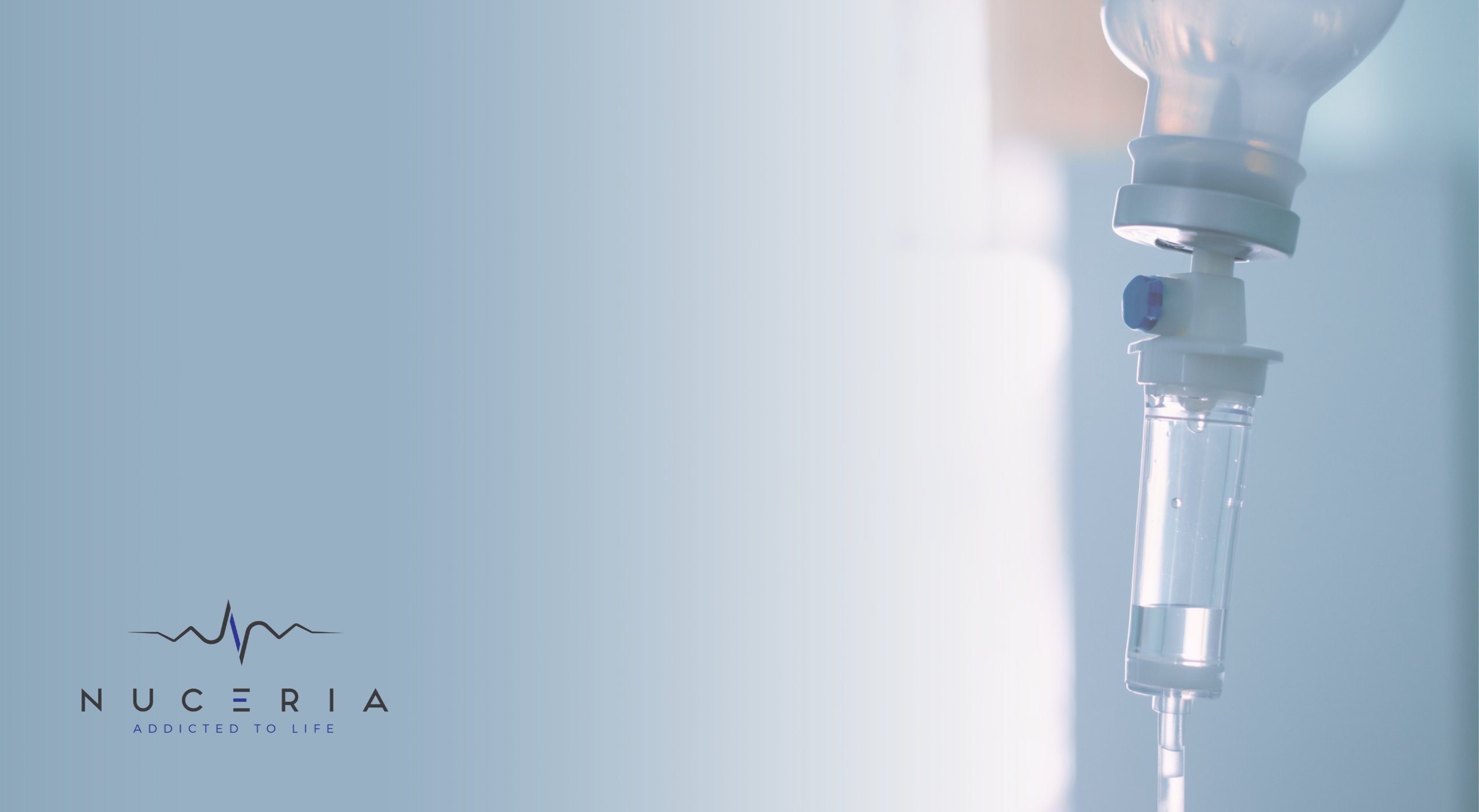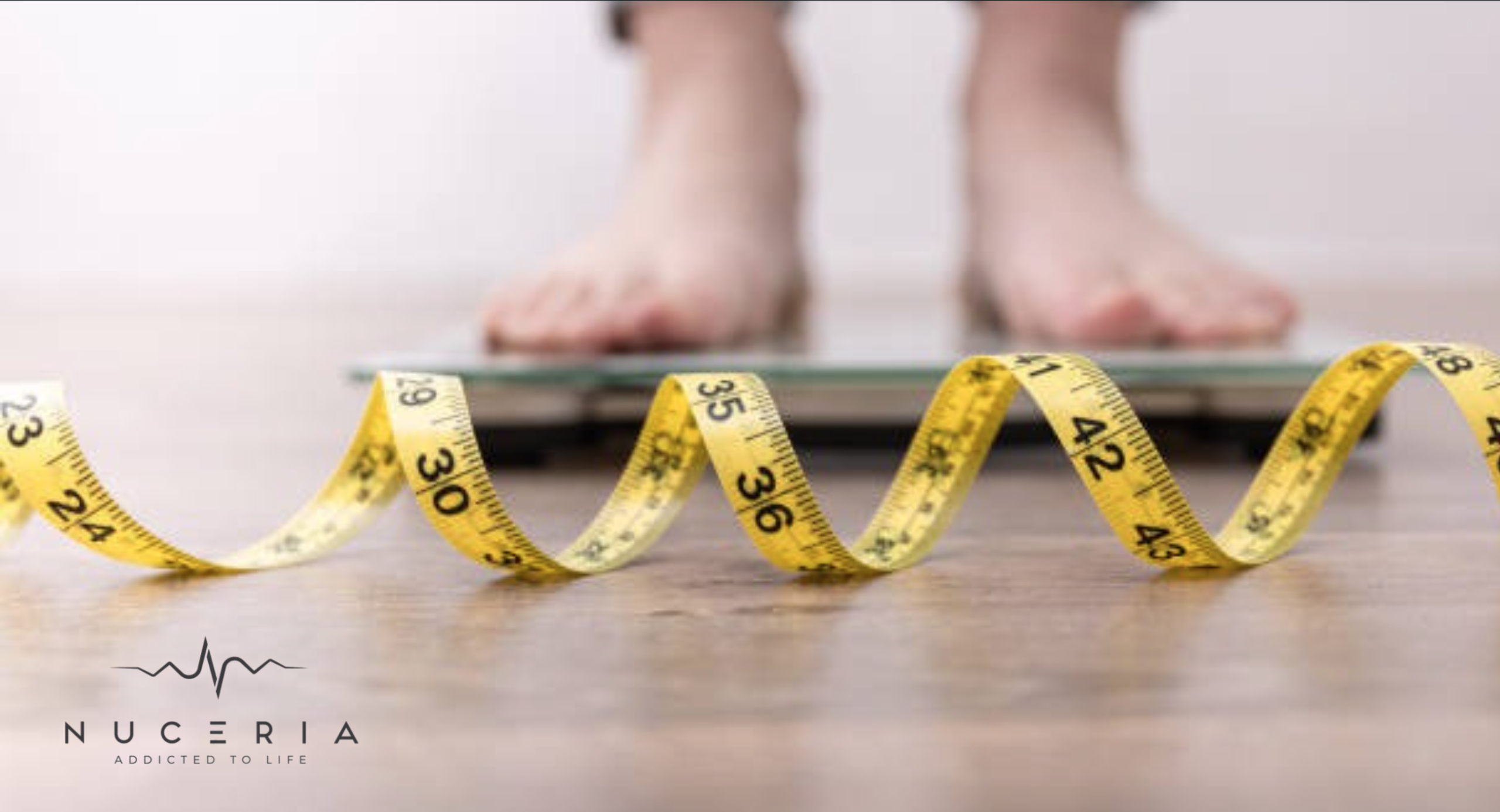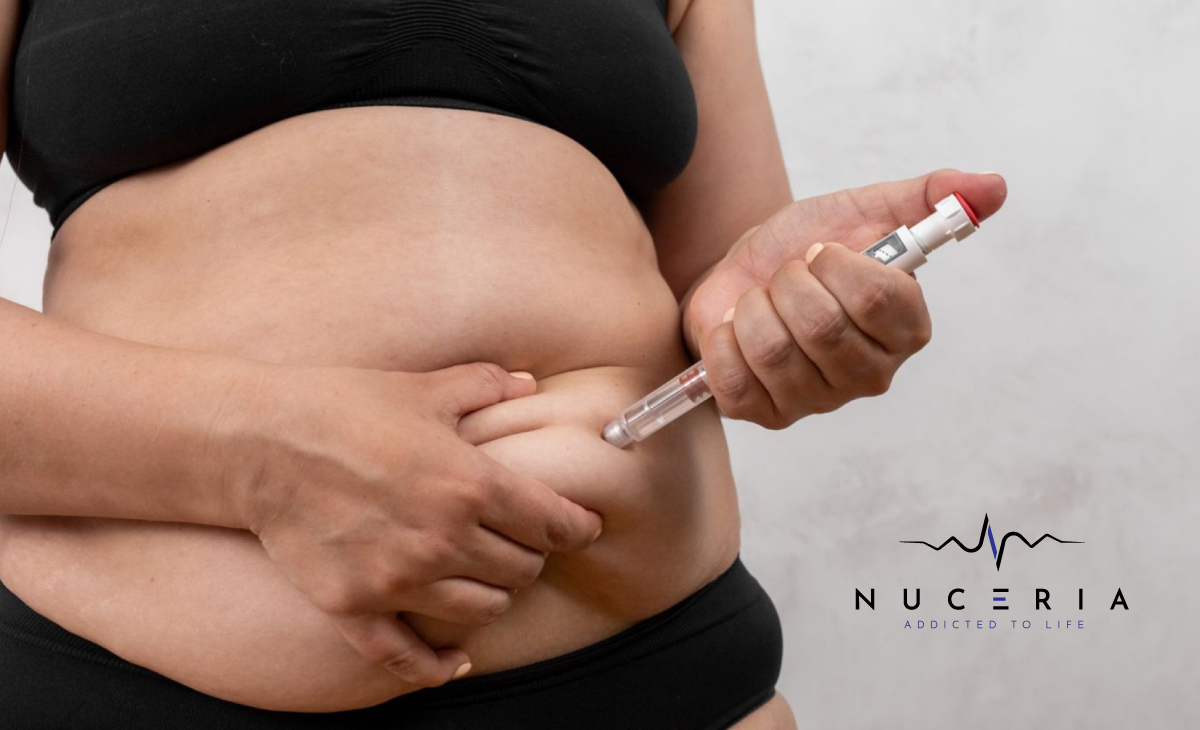Iron IV Infusions: Benefits, Side Effects & What to Expect
Iron is crucial in producing hemoglobin, which is essential for transporting oxygen throughout the body. However, many individuals, especially those with conditions such as anemia, chronic diseases, or gastrointestinal disorders, struggle to maintain sufficient iron levels. This lack of iron makes it difficult to absorb enough iron through diet or supplements alone.
This article covers all iron infusions, including their benefits, typical side effects, preparation, and post-procedure dietary recommendations.
Whether you're considering an iron infusion for the first time, are pregnant and need additional iron, or are exploring local options in Miami, like My Nuceria, this guide will walk you through all aspects of the treatment and help answer common questions.
What is an Iron IV Infusion?
Iron IV infusions deliver iron directly into your bloodstream via a vein. This approach skips the digestive system, enabling faster and more effective absorption than oral supplements. Healthcare providers typically recommend it for individuals who struggle to absorb iron from food or supplements or need a quick increase in their iron levels.
Why Would You Need an Iron Infusion?
Doctors prescribe iron infusions when oral supplements fail to raise iron levels or when a patient cannot absorb iron properly due to medical conditions. Conditions like chronic kidney disease, heavy menstrual bleeding, and pregnancy-related anemia often require this therapy. Iron infusions are also ideal for people who experience severe gastrointestinal side effects from oral iron supplements.
Common Conditions Treated by Iron Infusions
Iron infusions are a standard treatment for iron deficiency anemia, which can result from chronic blood loss, gastrointestinal issues, or cancer treatments like chemotherapy. Patients with conditions that limit iron absorption, such as celiac disease, ulcerative colitis, or Crohn's disease, may also benefit from IV iron therapy.
How Iron Infusions Work
The procedure involves inserting a needle into a vein, usually in your arm, and delivering iron intravenously. Depending on the type of infusion and the dose required, the process can take anywhere from 30 minutes to several hours. Directly introducing iron into the bloodstream helps restore iron levels more quickly than oral supplementation.
Iron Infusions During Pregnancy
Importance of Iron for Pregnant Women
During pregnancy, your body needs more iron to support maternal health and the baby's development. Iron is crucial for producing hemoglobin, the protein responsible for transporting oxygen in the bloodstream. The body's need for iron increases during pregnancy, putting expectant mothers at a higher risk of developing iron deficiency anemia, particularly in the second and third trimesters.
Safety of IV Iron During Pregnancy
IV iron infusions are generally considered safe during pregnancy, particularly for women who cannot tolerate oral iron supplements or whose iron levels remain low despite dietary changes. Studies show that iron infusions can effectively treat anemia and prevent complications such as premature birth or low birth weight.
Iron Infusion vs. Oral Iron Supplements for Pregnant Women
Oral iron supplements are typically the first choice for treating iron deficiency during pregnancy. However, some women experience gastrointestinal side effects like nausea or constipation, which can make compliance difficult. In such cases, an iron infusion provides a more effective and faster-acting alternative, ensuring adequate iron levels without the discomfort caused by oral supplements.
Preparing for an Iron Infusion
What tests do you need to undergo before getting an iron infusion?
Before receiving an iron infusion, your healthcare provider will conduct blood tests to evaluate your iron levels. These tests include a complete blood count (CBC), serum ferritin levels, and a transferrin saturation test. These tests help determine whether an iron infusion is necessary and ensure you receive the correct dosage.
Can You Get an Iron Infusion After a Blood Transfusion?
Yes, you can receive an iron infusion after a blood transfusion. While a blood transfusion temporarily replenishes red blood cells, it does not address the underlying issue of iron deficiency. An iron infusion can help restore your body's iron stores and maintain proper red blood cell production.
How to Get an Iron Infusion Near You (Miami, Nuceria Health)
If you're in Miami and need an iron infusion, clinics like Nuceria Health offer tailored treatments. My Nuceria is a wellness center offering iron infusion therapy and other health services. They focus on effectively and safely treating iron deficiencies, ensuring patients receive appropriate care. You can contact the clinic to arrange a consultation, during which their medical team will review your health history and conduct necessary tests before providing the infusion treatment. Finding a nearby clinic specializing in IV therapy can help you get the treatment you need quickly and with minimal hassle.
What to Eat After an Iron Infusion
Foods That Boost Iron Absorption Post-Infusion
After an iron infusion, you can enhance your body's iron absorption by including iron-rich foods in your diet. Lean meats such as beef, poultry, and fish provide heme iron, which your body absorbs more quickly than plant-based iron sources. If you prefer a plant-based diet, combine lentils, beans, and dark leafy greens with vitamin C-rich foods such as citrus fruits and peppers to improve absorption.
Vitamins and Nutrients to Include in Your Diet
Vitamins and nutrients like vitamin C, folate, and B12 are essential for supporting red blood cell production and iron absorption. Including fruits like oranges, berries, and kiwis in your meals can enhance the absorption of nonheme iron. Additionally, consuming foods rich in B vitamins, such as whole grains and leafy greens, will support overall blood health.
Hydration and Fluids Post Iron Infusion
It's essential to stay hydrated following an iron infusion. Water assists your body in processing and distributing the absorbed iron effectively. Drinking ample amounts of water, herbal teas, or fresh fruit juices can help boost your energy levels and enhance the benefits of the infusion. It's best to avoid drinks high in caffeine or tannins, like coffee and tea, as they can hinder iron absorption.
How Iron Levels Are Affected by Infusions
Iron Levels in Your Body: How They're Measured
Your doctor will assess your iron levels through blood tests that measure hemoglobin, ferritin, and transferrin saturation. These tests help determine whether your body has enough iron and whether the treatment works as expected. They can also detect any ongoing deficiency that might require follow-up treatment.
How Quickly Iron Levels Increase After an Infusion
Most patients begin to see an improvement in their iron levels within a week of receiving an infusion. The exact time frame varies depending on your overall health, the severity of your iron deficiency, and the type of iron infusion used. Your healthcare provider will likely recommend follow-up blood tests a few weeks after your treatment to ensure your iron levels increase as expected.
Long-Term Effects on Iron Levels
Iron infusions generally offer lasting results, with many patients maintaining stable iron levels for several months. However, those with chronic health conditions or persistent blood loss may require regular infusions to sustain healthy iron levels over time.
Common Side Effects of Iron IV Infusions
Fatigue After an Iron Infusion
Feeling tired after an iron infusion is a common side effect. Iron infusions, intended to enhance energy levels, can lead to fatigue or dizziness in some individuals soon after the treatment. Resting, staying hydrated, and eating iron-rich foods can mitigate these symptoms.
Blood Pressure Changes and Monitoring
During and after an iron infusion, healthcare providers monitor your blood pressure closely. Some patients experience a drop or rise in blood pressure, which usually resolves quickly. If you experience dizziness or fainting, inform your doctor immediately so they can address the issue.
Allergic Reactions: What to Watch For
Though rare, allergic reactions can occur during an iron infusion. Symptoms include itching, hives, swelling, or shortness of breath.
Nuceria's medical staff undergoes training to handle these reactions, ensuring prompt intervention during the infusion should any complications arise.
Iron Infusions vs. Other Treatments for Iron Deficiency
IV Iron vs. Oral Iron Supplements
IV iron infusions are often more effective and faster-acting than oral supplements, especially for individuals with difficulty absorbing iron through the gut. While oral supplements may take weeks to increase iron levels, IV iron works almost immediately. Additionally, it avoids the common side effects of nausea and constipation associated with oral supplements.
When Do You Need a Blood Transfusion Instead of Iron Infusions?
A blood transfusion may be necessary in severe anemia, where hemoglobin levels are dangerously low. Blood transfusions immediately increase red blood cells and oxygen delivery to tissues. However, because a transfusion does not restore iron levels, an iron infusion may need to be administered afterward to correct the deficiency.
Comparing the Effectiveness of Different Types of Iron Infusions
Several iron infusions are available, including ferric carboxymaltose and iron sucrose. Some infusions require a single session, while others may need multiple doses over several weeks. Your doctor will recommend the most appropriate type based on your health status, iron levels, and response to previous treatments.
Conclusion
Iron IV infusions offer a safe, effective, and efficient solution for people with iron deficiency. Whether you're pregnant, managing chronic illness, or need a fast way to boost your iron levels, an iron infusion can help improve your overall health and energy levels. Clinics like My Nuceria in Miami offer personalized iron infusion therapies to ensure you get the best care possible. Always consult your healthcare provider to determine the best treatment plan.
FAQs
-
Can you receive an iron infusion and blood transfusion at the same time? Healthcare providers can administer iron infusions after a blood transfusion to restore iron levels.
-
How long does an iron infusion take? Depending on the type and dosage, most take 30 minutes to an hour.
-
What should I eat after an iron infusion? Focus on iron-rich foods like lean meats, spinach, and legumes, and pair them with vitamin C-rich foods for better absorption.
-
Is it normal to feel tired after an iron infusion? Mild fatigue is common after an injection but usually subsides within a day.
-
How long do the effects of an iron infusion last? Depending on your body's iron needs and underlying conditions, the effects can last several months.
-
Which iron infusion requires tests? Before an iron infusion, you must undergo blood tests to check your iron levels. Tests include serum ferritin and transferrin saturation to determine the need for infusion and the appropriate type.
-
What test can I take to determine if I have an iron deficiency? To check for iron deficiency, your doctor will typically perform a complete blood count (CBC) to assess your red blood cells and hemoglobin levels. A serum ferritin test will measure the iron stored in your body, and a serum iron test can detect how much iron is circulating in your blood. Together, these tests will clearly show whether you have an iron deficiency.
-
How do I know if I am a candidate for IV iron infusion? You may be a candidate for IV iron infusion if blood tests confirm low iron levels. You are unable to absorb iron from food or oral supplements due to conditions such as iron deficiency anemia, chronic blood loss, gastrointestinal issues, or pregnancy. Your doctor will review your medical history and test results to determine if this treatment is proper.
Request an appointment here: https://mynuceria.com or call Nuceria Health at (305) 398-4370 for an appointment in our Miami office.
Check out what others are saying about our services on Yelp: Wellness Center in Miami, FL.







